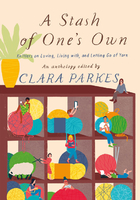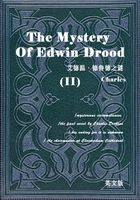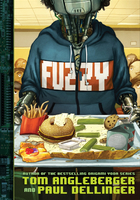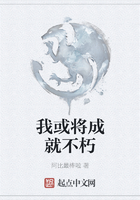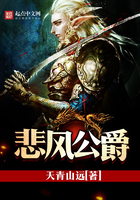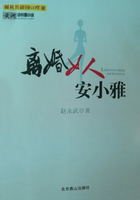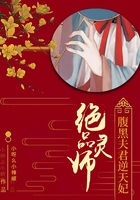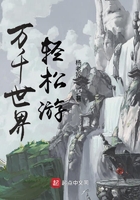Beginning in the mid-1980s, I spent eight years researching and writing President Kennedy: Profile in Power, supplementing information publicly available at the time with new interviews and fresh material.
Although the book remains in print, obviously new information about the 35th president has been released or revealed during the past two decades. Much of it is unflattering, including accounts of his careless sexual adventures, some drug use, an expansion of my reports of his persistent lying about the true state of his health, and a proliferation of conspiracy theories about his assassination, 50 years ago on November 22, 1963. Still, after half a century, John F. Kennedy is revered by hundreds of millions of people around the world. His martyrdom is classically the story of an athlete dying young, the young prince tragically struck down. Many Americans old enough to remember that hopeful time, which his widow later and memorably called "Camelot," rank him among our five greatest presidents. The question now is how he will be seen by new generations, young people whose parents were born after Kennedy died. Reputation, after all, is a mix of fact and legend, but also of memory, nostalgia and the word of people we trust.
Personally, I think his public persona will survive, because the story of his life and presidency is so compelling and accessible on film and videotape. Beyond that, the Kennedys—Jack and Jackie—were cultural icons, changing the way Americans thought about their country and its leaders, even how they dressed. Kennedy didn't wear hats and soon not many American men did either. Historians and political writers, by and large, consider him a "significant" president, not a transformative one in a class with George Washington, Abraham Lincoln, Franklin Delano Roosevelt, and perhaps Theodore Roosevelt and Ronald Reagan.
Kennedy, by the end of his days, did have at least three historic achievements: He prevented a possible nuclear World War III. He put Washington on the side of the minority in the black struggle for civil rights, no small thing in a democracy and an act of political courage in which his own Democratic Party controlled Southern states but whose representatives opposed him. He gambled confidently that the United States could overtake the Soviets' early lead in space, pledging that an American would walk on the moon before the end of the 1960s. He also experienced a couple of disasters, especially by approving an invasion of Cuba in 1961 at a place called the Bay of Pigs, and the military coup that toppled and killed President Ngo Dinh Diem of Vietnam in 1963, leaving in its wake a regime in Saigon distinguished by its corruption and incompetence, and a war that bitterly divided Americans.
Another factor in Kennedy's enduring popularity is that no presidency before his was covered as heavily by newspapers and the new medium of national television. The wealth of New York Times articles that follow in the pages below are an example of that.
It was no accident. Kennedy, a hungry political animal, wanted to center public attention on the administration in the White House. One of his first directives to federal agencies was that all good news and analyses be sent to the president's office and announced there. Reporters soon realized what was happening and more and more of them stopped covering agencies, applying instead for White House credentials. Kennedy was not only a good story, often he was the only story.
The president also organized his staff and Cabinet members in the same way. Forsaking the military and corporate organizational charts used by most of his predecessors in the Oval Office, Kennedy said soon after his election that he intended to manage by using what he called a "wheel with many spokes" with himself at the hub, "the vital center." "It was instinctive at first," he said, "I had different identities, and this was a useful way of expressing each without compromising the others." In other words, all his relationships were bilateral; his staff did not know what he was telling others.
He was an exceptional professional politician, charming and intelligent, detached and curious, candid if not always honest. He could be ruthless when he thought it was necessary. He was dangerously disorganized. He was addicted to excitement, living life as a race against boredom. Because he was sick most of his childhood and in pain most of his adult life, he always thought he would die young and was impatient and determined to make the most of it.
"No one ever knew John Kennedy, not all of him," said one of his closest friends, Charles Bartlett, a syndicated columnist. That too, was the way Kennedy wanted it. Only 44 men know what it is really like to be president of the United States. What it was like to be President Kennedy was dramatized by the events of just two days, June 10 and 11, 1963.
Bringing the president home from an address to the U.S. Conference of Mayors in Hawaii, Air Force One landed at San Francisco to pick up Theodore Sorensen, his confidant and speech writer, who had flown there after working alone in Washington on a draft of what the president called "The Peace Speech." At 10 a.m., June 10, at American University, Kennedy delivered what was probably his greatest speech. He said: "Let us re-examine our attitude toward the Soviet Union… We find communism profoundly repugnant… [But] we all breathe the same air. We all cherish our children's future. And we are all mortal."
Before noon he was back at the White House, where he was told that Governor George Wallace had appointed himself provost of the University of Alabama and was planning to stand in the doorway of its main building surrounded by state troopers. In the opening act of high political theater, Wallace was determined to block the first two black students admitted to the school. Good news also awaited Kennedy: Izvestia, the Soviet news service, was transmitting the full text of Kennedy's American University address and the Soviets had shut down their jamming equipment so that the Voice of America could broadcast it in Russian from Leningrad to Vladivostok. And there was awful news from Vietnam: a Buddhist monk had poured gasoline over himself and burned to death at Saigon's busiest intersection to protest the American-backed regime of Diem.
By the following night the turmoil in Alabama seemed to be calming down. Wallace saluted the just federalized National Guard troops and abruptly left the campus with his state troopers. Kennedy decided late in the day to go on television to push new civil rights legislation. He had only a couple of pages of text and some notes, but nonetheless delivered words that were memorable. "This is not a sectional issue… Nor is this a partisan issue… This is not even a legal or legislative issue alone. We are confronted primarily with a moral issue."
The presidency is often a reactive job, defined by events. No one remembers whether Lincoln balanced the budget. And no one knew during the 1960 campaign that the new president would be confronted by a racial crisis at home and Soviet missiles 90 miles from Florida.
"The Cuban Missile Crisis," as it came to be known, was President Kennedy's finest hour—or finest 13 days. For the president, who often worked in his bed during the morning, it began at 8:45 a.m. on October 16, 1962. His national security adviser, McGeorge Bundy, knocked on the bedroom door. He had aerial photographs under his arm. "Mr. President," said Bundy, "there is now hard photographic evidence, which you will see, that the Russians have offensive missiles in Cuba."
Kennedy was stunned. He had publicly dismissed Republican claims, based on information whispered to them by the Central Intelligence Agency, that medium-range missile bases had been built in Cuba. Kennedy said they were ordinary anti-aircraft weapons. He was wrong and initially thought that when the news became public, he would be defeated in the 1964 election. "We are probably going to have to bomb them," he said. But he quickly rejected that idea when members of the Joint Chiefs of Staff estimated that it would take hundreds of sorties to knock out the missiles—which turned out to number more than thirty—and could guarantee destroying only 90 percent of the installations.
Kennedy quickly came to realize that the crisis was political rather than military, an insight that served him and the world well. He was a decisive leader, but made decisions only when he had no choice and generally picked the most moderate options available. He assumed that the Soviet missiles had nuclear warheads and if the United States attacked Cuba, the Soviets would retaliate by taking West Berlin and perhaps invading West Germany. They had troops in place to do that—and it would probably trigger a world war. He decided to continue to keep the information secret and continue campaigning for Democratic candidates in the 1962 mid-term elections, as if nothing unusual was happening. He thought secrecy would buy time. Six days into the crisis, his most trusted advisers had been meeting almost around-the-clock.
By October 22, the president knew that he had to go on television to tell the American people why—and warn the Soviets that—troops were being called to report all along the east coast, which was in range of the Soviet missiles. He announced that the United States Navy was surrounding the island to quarantine and stop Soviet ships from reaching Cuba. It was a blockade, but he did not use that word because a blockade is an act of war. By October 24, after the Navy had stopped and boarded three ships, Soviet ships turned around or stopped short of the quarantine line.
By then, Kennedy and Soviet Premier Nikita Khrushchev were exchanging threatening messages. On October 25, in Moscow, a courier delivered to the American Embassy a long, rambling, sometimes incoherent letter from Khrushchev that hinted at a deal if the Americans would pledge not to invade Cuba and remove 15 missiles in Turkey along the Soviet border. Just 15 minutes after the so-called "night letter" was read by Kennedy, another letter arrived, much less conciliatory, which used Khrushchev's name but apparently was written by a committee. Kennedy chose to answer the first letter, saying: "You would agree to remove these weapons systems from Cuba… We on our part, would agree promptly to remove the quarantine measures now in effect… and give assurances against an invasion of Cuba."
Kennedy also agreed to remove "other armaments"—referring to already obsolete Jupiter missiles based in Turkey. The two politicians, men with the final say on the nuclear weapons, had an agreement they each could claim as a victory—Khrushchev saving Cuba, Kennedy, the world.
The president went to West Berlin on June 26, 1963, and was greeted by a roaring crowd of more than a million people. On August 28, as Martin Luther King Jr. gave his "I Have a Dream" speech, Kennedy signed off on the coup by South Vietnamese generals to depose President Diem.
After long negotiation, the United States, the Soviet Union and Great Britain signed, in August 1963, the Test Ban Treaty, a significant achievement, the first formal treaty of the atomic age. By then the "political animal" was thinking re-election and particularly about changing minds in Texas, where intra-party Democratic feuding could endanger his re-election chances in 1964. On Kennedy's itinerary of major cities were Houston and Austin, then Fort Worth and, of course, Dallas.
—By Richard Reeves


